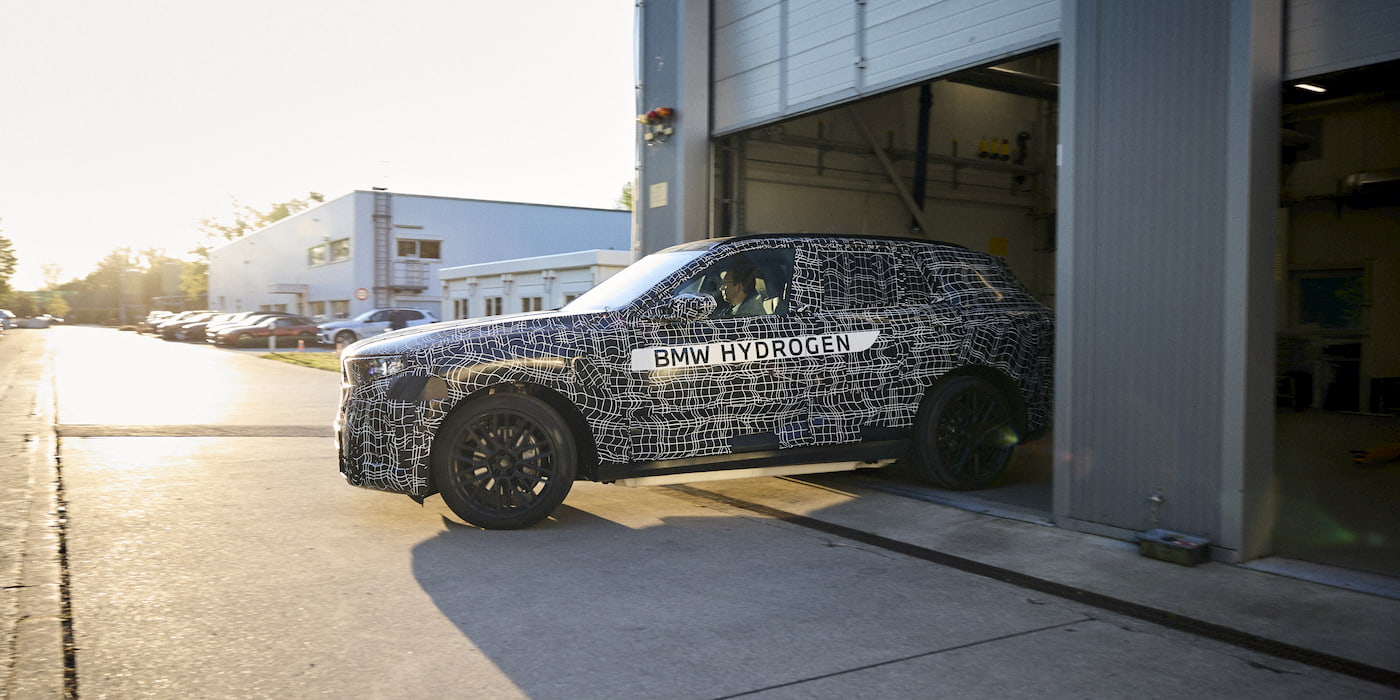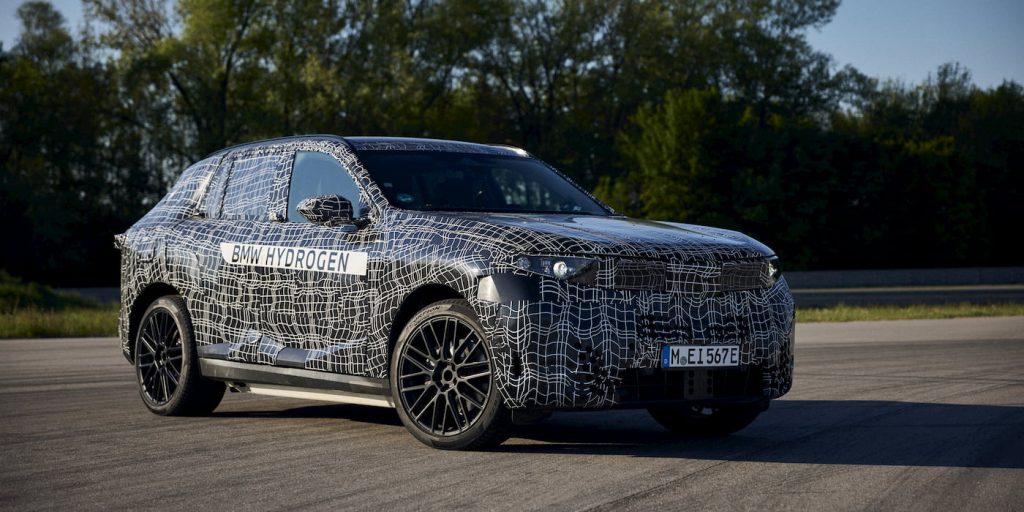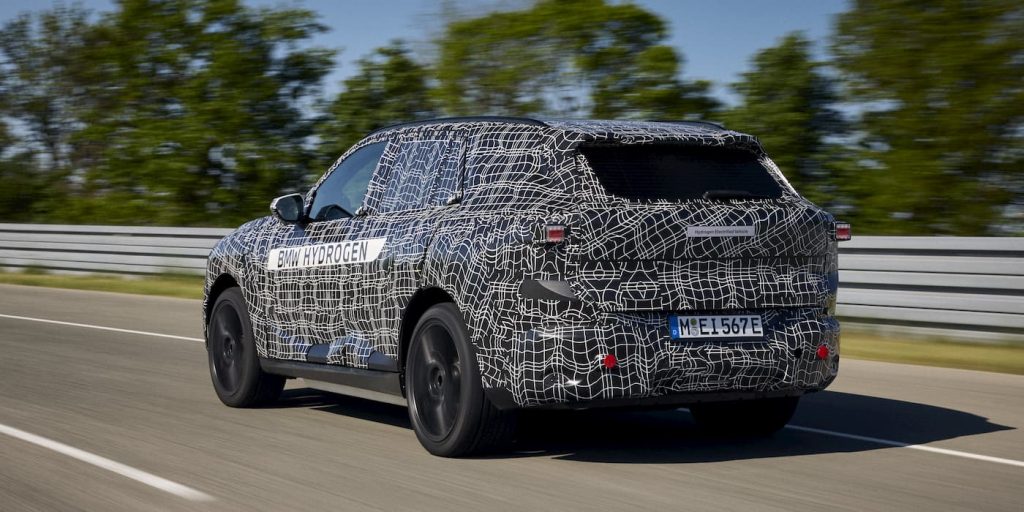
BMW and Toyota are working together to bring the iX5 Hydrogen to life. For the first time, the new BMW iX5 will be offered in five different powertrains, including an EV, plug-in hybrid, gas, diesel, and hydrogen-powered models.
The new BMW iX5 is an EV, PHEV, Hydrogen, and gas car
By launching the new BMW iX5 with a choice of five drive system variants, we are once again demonstrating our leading position as a technology pioneer,” BMW’s development boss, Joachim Post, said during an event in New York on Monday.
Post added that “Hydrogen has an essential part to play in global decarbonisation,” while committing to advancing the technology for future use.
The new hydrogen-powered iX5 will be based on its third-gen fuel cell system, which BMW is developing through a partnership with Toyota. BMW claims the new system is more powerful, efficient, and compact, “thereby increasing range and output at the same time as reducing energy consumption.”
BMW said it’s already building the first prototypes in Munich and at the BMW Group Plant Steyr in Austria. Additional parts will come from the Group’s Landshut plant in Germany.

Despite a different powertrain, “the new BMW iX5 Hydrogen will be a true BMW,” promises Michael Rath, the Group’s vice president of hydrogen vehicles.
Following pilot tests, the new iX5 is set to launch in 2028 as BMW’s first mass-produced hydrogen-powered model.

BMW is also “actively involved” in expanding hydrogen refueling stations in the region. The automaker has already started a pilot phase in partnership with others in Germany and France, with plans to expand to other countries soon.
We will learn official specs and pricing closer to launch. However, according to Autocar, the new BMW iX5 Hydrogen will be based on an updated version of its CLAR platform, rather than the Neue Klasse EV platform. It’s expected to offer around 313 miles of range.
Electrek’s Take
Didn’t we already prove that battery electric (EV) technology is superior to Hydrogen? I guess not. Several automakers are still betting on hydrogen vehicles with significant investments, including BMW, Toyota, and Hyundai.
According to SNE Research, only 4,102 fuel cell electric vehicles (FCEVs) were sold in the first half of 2025, 27% fewer than the same period last year.
Hyundai led with 1,252, mostly NEXO models sold. Toyota ranked second with 698 Mirai and Crown models, a 46% decrease compared to last year.
The report highlights that “The hydrogen vehicle market still faces structural limitations, including insufficient refueling infrastructure, high vehicle costs, and limited subsidies.” However, it added “growing technological collaboration among OEMs, and intergovernmental hydrogen diplomacy are gradually paving the way for expansion.”
Is Hydrogen the “missing piece for completing the electric mobility puzzle,” as BMW claims? We will find out over the next few years as new, more advanced EVs, PHEVs, extended-range vehicles (EREVs), and other powertrain types hit the market.
FTC: We use income earning auto affiliate links. More.

















